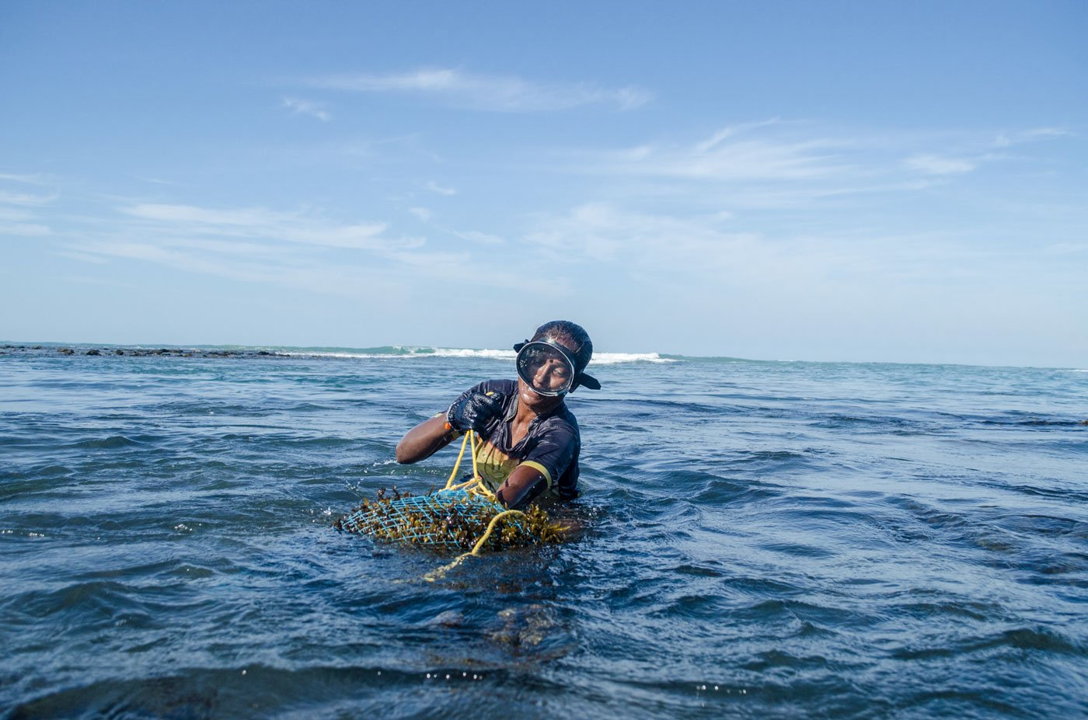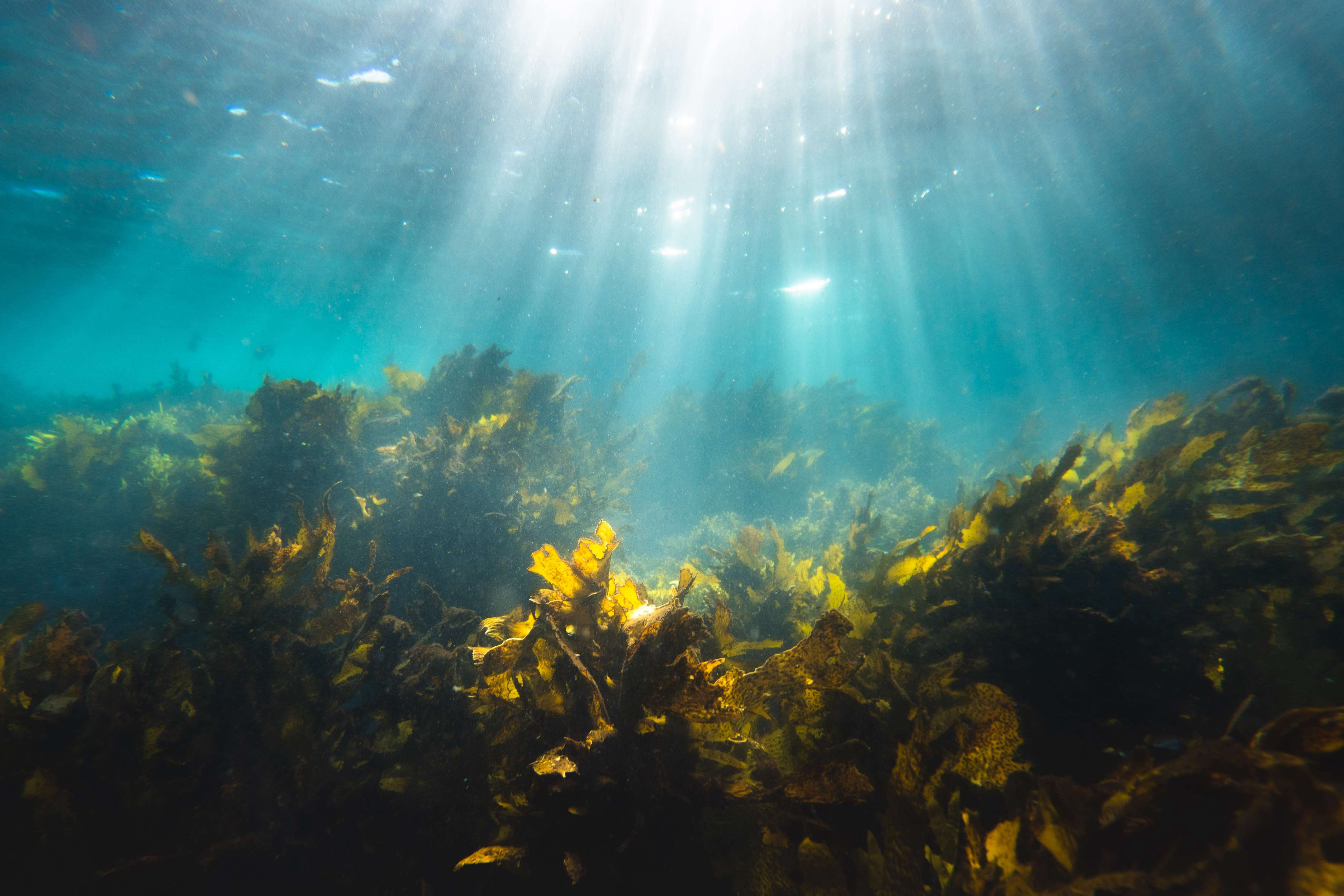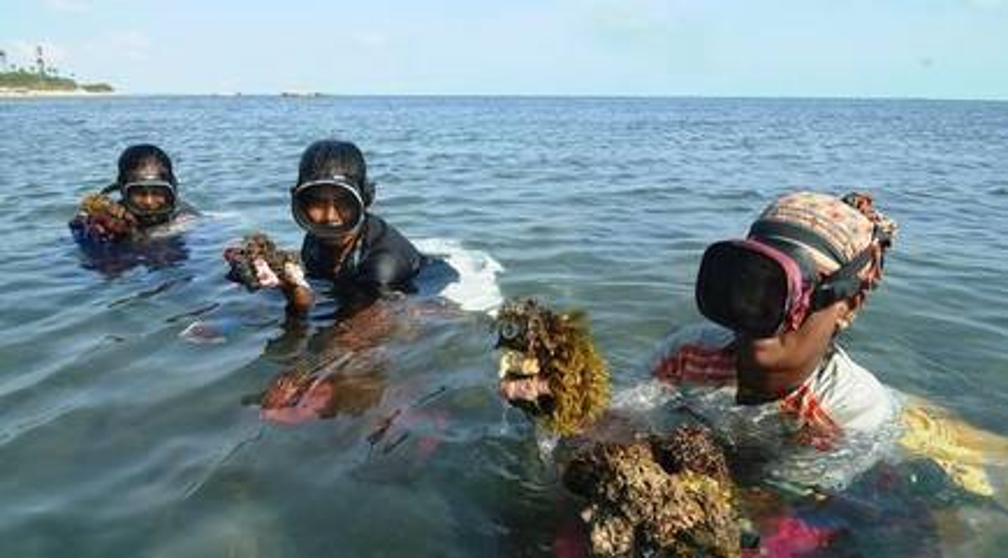
In this rough economic time, we’re crawling with high unemployment rates and numerous people are in search of new jobs. But a lot of unlikely jobs out there that you might never have heard of. It is true that some workers have jobs that are common to people in India, there are some brave women out there creating new paths of job, by harvesting seaweed. And these women have been harvesting seaweed for generations.
Seaweeds are not any other ordinary macroalgae, they are esteemed marine plants. About 2,000 women in Tamil Nadu dive in the ocean to collect seaweed from the coastline of the state. A News corporation named Bloomberg interviewed some women from Mayakulam village of Tamil Nadu. These women have been doing this job in a group, for the past 25 years. All of them wake up at 5 in the morning to cook meals for their kids and then they go to work. After harvesting the seaweed they bring it to the shore around 1 pm and separate the waste and stones from it, then make distinct bunches for drying. When the seaweed merchant reaches the shore, they lend the dried seaweed and the merchant weighs it. The seaweed harvesting gives them barely 300-500 rupees.

The seaweed harvesting helps them to feed their children and to pay for their education. These women have been doing this job since their childhood, and they chose it due to poverty and illiteracy. The women themselves share a really good bond and they also help each other in any crises. For instance, if a person from their group doesn't have the money to pay for their children's school fees, the other ladies in the group supports them financially. And if no one in the group has the money, they go for loans as well. They want their children to learn in schools, at any cost.
The job of seaweed collection is not an easy task, and the ocean can destroy them in a blink of an eye. Two of them died during the 2004 tsunami, the others wondered about the low water levels that time and suddenly the waves rose high and sucked their friends down in the ocean. Not just the challenges of nature, but society also creates a hardship for them. They explain that they don't feel proud of their job. People in their surroundings humiliate them because they work in the ocean. And now, the women don't want their children to do the same work, they hope that their children will get some respect in society because they are educated. Even after all the problems the ladies do their job cheerfully and work badly for their livelihood and their children's education. One of them even announces, “The sea is everything to us.”

The Seaweeds comprise one of the commercially profitable and renewable marine living resources. In India, about 844 species of seaweeds are distinguished till now. And more than 60 species of seaweed are commercially utilized. However, strong retail cultivation is yet to take place in India. The total estimated potential of seaweed is 1,005,000 tons in six states of India including Gujarat, Tamil Nadu, Kerala, Andhra Pradesh, Maharashtra and Andaman-Nicobar Islands.
Presently, seaweeds are used in food, cosmetic products and fertilisers, and similarly for the extraction of industrial chemicals. Seaweed holds the potential to be utilized as a source of chemicals for medicinal and industrial uses. Moreover, the seaweed is used in agar and fertilizers. Agar is a natural vegetable gelatin equivalent and it is one of the best commercial uses of seaweed, but its processing is restricted to lower ratings of agar-agar. And its manufacturers in India are operating at less than 50% of their capability. A few Indian firms which have taken up seaweed cultivation are Tata Chemicals, Coromandel Fertilizers, Seth’s company and HiMedia. According to a report of moneycontrol.com, seaweed cultivating communities near coastlines of India can approximately earn up to INR 2,000 crores a year. Dried seaweed makes up to INR 86,000 per year per raft and a family can generate 40 rafts in a year. And this could give a family around INR 34 lakh yearly, but only if suitably organized.
With the rise in ocean temperature and saltiness, seaweed upswing has declined at a greater scale. But it is an efficient livelihood preference for the fishing community, and primarily for fisherwomen, who can easily receive earnings for their family, because as they say, that, "the ocean is everything for them".
___________________________________________________________________
Reference:
(bloomberg.com/ scroll.in/ ijpsr.com)
